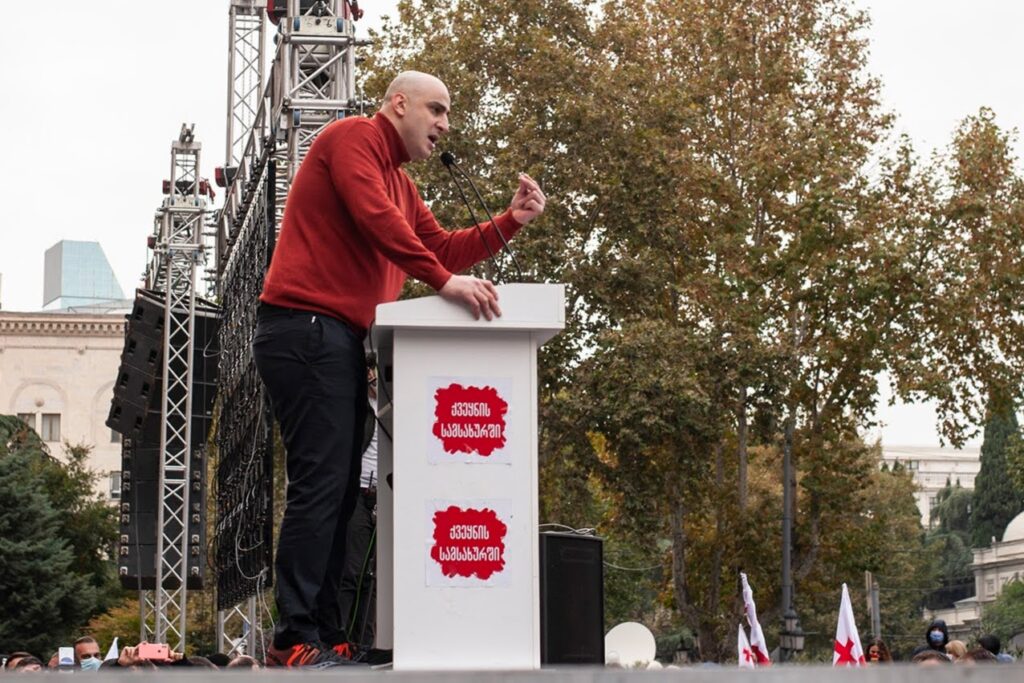The chair of Georgia’s largest opposition party, the United National Movement (UNM), has been freed from pre-trial detention after the EU posted his bail.
Nika Melia was released on Monday after spending around 11 weeks behind bars.
His release was one of the conditions of an EU-brokered deal between the government and opposition aimed at bringing an end to the political crisis in Georgia.
Supporters greeted Melia outside the prison in Rustavi, a city 20 kilometres south of the capital Tbilisi, after Judge Nino Chakhnashvili granted a motion by the Prosecutor's Office to grant him bail.
Melia, who is charged with ‘leading group violence’ during June 2019 anti-government protests, had previously refused to pay the ₾40,000 ($12,000) bail and had warned others not to do so in his place.

Melia, who replaced third Georgian President Mikheil Saakashvili as UNM chair last December, was arrested on 23 February, six days after judge Chakhnashvili ruled on his detention following his refusal to pay bail.
The Rustavi City Court increased his previous bail of ₾30,000 ($11,000) after he removed a monitoring bracelet at a protest on 1 November, a day after the October parliamentary elections.
Plans for his arrest after parliament stripped him of his immunity caused a rift within the government, resulting in the departure of Prime Minister Giorgi Gakharia on 18 February.
The resignation of Gakharia, who led Georgian Dream’s electoral list in October’s election and is currently seeking to form his own party, has been another argument used by opposition parties to demand early elections.
[Read on OC Media: Opinion | Georgian democracy on life support]
Nika Rurua, another opposition figure whose release was part of the EU-brokered deal, was pardoned by President Salome Zurabishvili on 27 April.
The political crisis far from over
Despite being signed by the ruling Georgian Dream party as well as several opposition parties and MPs on 19 April, the EU-brokered deal to end the political crisis has become increasingly controversial among the opposition.
Following the agreement, which was strongly supported by the US, several opposition MPs conditionally endorsed their mandates to vote for the promised reforms, after boycotting parliament for several months.
Several MPs, including those from the UNM, European Georgia, Labour, and Law and Justice party, refused to do so.

One of the biggest points of contention from the deal has been an amnesty law over the June 2019 protests; two versions of the law have currently been initiated in the parliament.
Both versions have received strong opposition from Melia, as well as some extra-parliamentary stakeholders, including a group of demonstrators who were injured by the police.

[Read more on OC Media: Voice | ‘What I hate the most is the injustice of it’]
The agreement also envisages reforming Georgia’s judicial and electoral system before local elections which are set for October. As part of the agreement, Georgian Dream has committed to calling early a parliamentary vote in 2022 if they win less than 43% of proportional votes in the local elections.




 10 May 2021
10 May 2021



